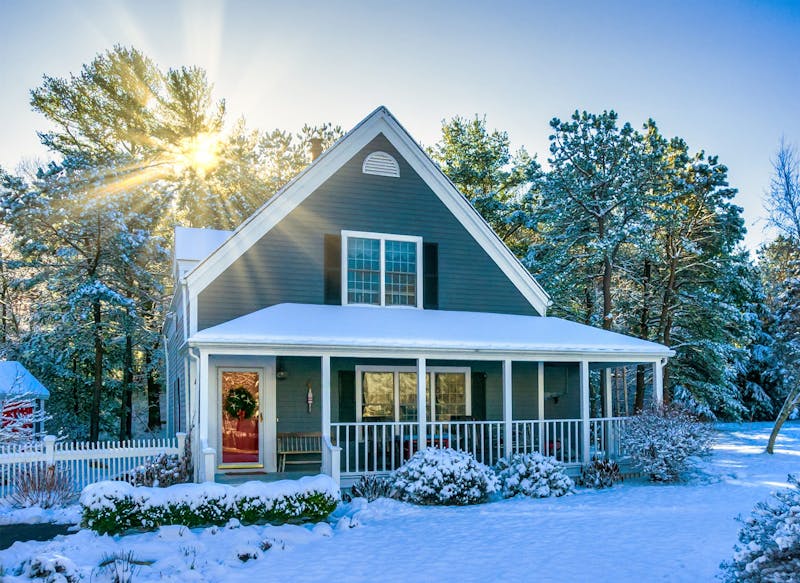
The winter season brings many risks to your home and family, such as winter weather, fire hazards, and theft. Protecting your home during the winter is, therefore, important. This can be as simple as keeping an eye out for obvious risks, such as icy walkways, taking steps to disguise being away from home, or eliminating or minimizing the risk of fire hazards.
By taking preventative measures to protect your home and those inside it, you will reduce the likelihood of making insurance claims for losses or being exposed to liability for injuries to visitors.
Protect Your Home from Theft
Thieves or burglars use various techniques to identify target-rich environments. For example, they can peek through your windows or rummage through your trash to determine what you may have in your home. To reduce the risk of giving thieves a reason to target your home, you can shred store receipts and credit card bills, wait until garbage day to throw out the packaging of expensive items, and keep gifts away from your ground-level windows.
More sophisticated techniques employed by thieves include scouting your home via social media. Thieves will look for posts about travel plans and gifts to assess the risks and rewards of breaking into your home. Resisting the temptation to post about travel and gifts or delaying those posts until after the trip can thwart attempts to electronically case your home.
When you do travel, you may want to invest in some anti-theft countermeasures such as home alarm systems and electric light timers. If your lights are on and your front window has security stickers of an alarm company, would-be thieves will think twice before breaking in.
Schedule a Free Legal Consultation Contact Us
Protect Your Home from Winter Hazards
Winter itself can be hazardous to your safety and those of your family, guests, and even your pets. Prepare for emergencies by assembling a disaster kit with a few days of supplies, including food, water, flashlights, and batteries. Remember to address everyone’s needs with your disaster kit by including diapers, pet food, and prescription medications for those who might need them.
Inspecting your home and yard periodically can also protect your home. Overflowing rain gutters can create puddles that freeze on your walkways and driveways. Similarly, tree branches that have been damaged by wind, snow, or freezing rain can break and strike your home, car, or unsuspecting visitors.
Under premises liability principles, you are required to take reasonable steps to discover any hazards and either warn guests or eliminate the hazard. Making a quick walkthrough of your property after a powerful storm can show that you acted reasonably if a hazard originating on your premises causes property damage or personal injury.
Protect Your Home from Fire
To protect your home from fire, invest in smoke alarms and replace the batteries every six months. Remember to extinguish open flames and candles when you are not at home.
How to Protect Your Home and Yourself
Although financial exposure to many of these hazards can be mitigated through home insurance, once deductibles are considered, prevention is often much less costly than being reimbursed for the loss. Worse yet, insurance claims for personal property may be subject to claim limits, particularly if you lack records to prove the value of the property. Finally, claims against your home insurance can cause your insurance premium rates to skyrocket.
Additionally, it’s worth repeating that you should take reasonable steps to protect your home against theft, fire, and weather-related hazards. This will mitigate the risk that your home will suffer a casualty. And if a dispute were to arise between you and your insurance company or a guest, your reasonable actions will help you to avoid bearing the blame for any personal injury or property damage.
If you have suffered a loss and have not been fully compensated by your insurance company, have been accused of negligence for an injury that occurred on your property, or suffered an injury on someone else’s property, you are welcome to contact us at Heninger Garrison Davis, LLC today to discuss your situation.

